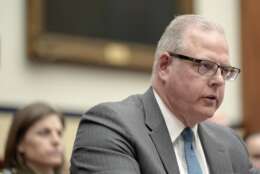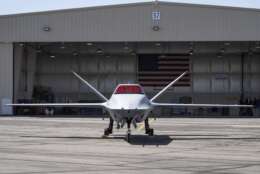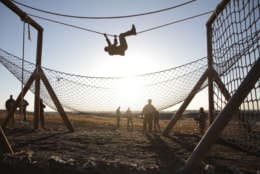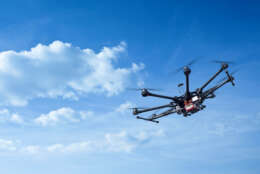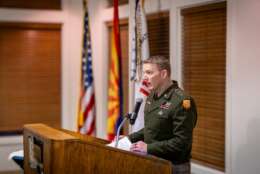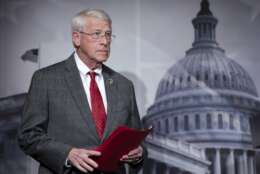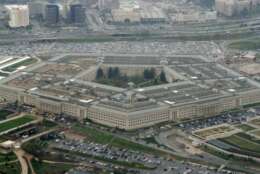On DoD
-
Sherman, the DoD CIO since December 2021, has taken the position of dean at Texas A&M's Bush School of Government.
June 06, 2024 -
Recent studies and exercises have shown that the Army needs a layered approach to EW and that the electromagnetic spectrum should be treated as terrain.
June 05, 2024 -
Senior Army officials continue to push back against the idea of establishing a drone corps. Gen. James Rainey says it is "too early" for a separate branch.
June 04, 2024 -
The Army’s Next Generation Command and Control (NGC2) Capability Characteristics or C2Next is the roadmap for developing a different kind of command post.
June 04, 2024 -
House Armed Services Committee's bill is seen as premature by Gen. James Rainey, who leads the Army Futures Command.
June 04, 2024 -
Retired Admiral Robert Burke, 62, faces up to three decades behind bars.
June 03, 2024 -
DLA's latest policy requires all of its employees to be in office on three specific days each week, irrespective of their job functions or locations.
June 03, 2024 -
Maj. Gen. Chris Eubank, commander of NETCOM, said soldiers and civilians will no longer be able to download data to their devices from outside the Army network.
May 31, 2024 -
Retired four-star admiral Robert Burke, who served as vice chief of naval operations, faces federal charges including bribery and conspiracy.
May 31, 2024 -
NASA has a Space Environment Sustainability Advisory Board to help guide policy for an area of space that is starting to look like the Beltway at rush hour.
May 30, 2024 -
Service members who attend training classes are eligible for a daily stipend to cover housing costs at their training location.
May 29, 2024 -
The top-ranking Republican on a Senate committee that oversees the military is calling for a “generational investment” in America’s defense.
May 29, 2024 -
"The goal is not to create one common operating picture. It's allowing us to be able to have data that is ubiquitously available," said Col. Matthew Strohmeyer.
May 28, 2024 -
The big military story for the United States concerns the ongoing recruitment crisis. Not enough young people are joining up.
May 28, 2024 -
Defense Secretary Lloyd Austin has undergone a medical procedure at Walter Reed National Military Medical Center and has resumed duty after temporarily transferring power. He is continuing to deal with bladder issues that arose in December following his treatment for prostate cancer. The Pentagon says the procedure Friday was successful, elective and minimally invasive, “is not related to his cancer diagnosis and has had no effect on his excellent cancer prognosis.” Austin has returned home, and the Pentagon says no changes in his official schedule are anticipated, including his participation in Memorial Day events.
May 24, 2024

